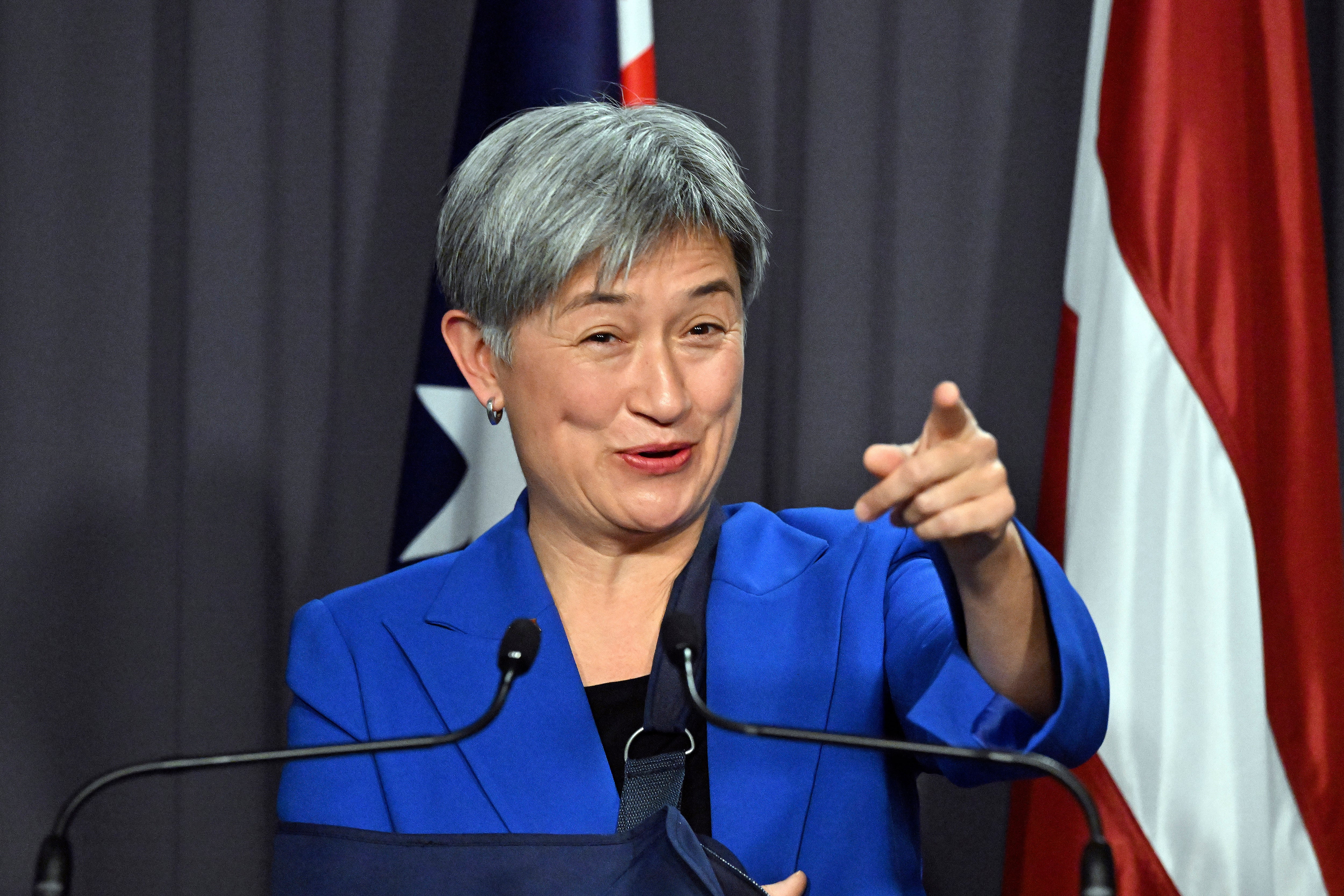Australia calls for cooling of Taiwan Strait tensions
Australian Foreign Minister Penny Wong has called for a cooling of tensions after Beijing accused her of “finger-pointing” in her criticism of China’s military exercises in response to U.S. House Speaker Nancy Pelosi’s visit to Taiwan

Your support helps us to tell the story
From reproductive rights to climate change to Big Tech, The Independent is on the ground when the story is developing. Whether it's investigating the financials of Elon Musk's pro-Trump PAC or producing our latest documentary, 'The A Word', which shines a light on the American women fighting for reproductive rights, we know how important it is to parse out the facts from the messaging.
At such a critical moment in US history, we need reporters on the ground. Your donation allows us to keep sending journalists to speak to both sides of the story.
The Independent is trusted by Americans across the entire political spectrum. And unlike many other quality news outlets, we choose not to lock Americans out of our reporting and analysis with paywalls. We believe quality journalism should be available to everyone, paid for by those who can afford it.
Your support makes all the difference.Australian Foreign Minister Penny Wong on Monday called for a cooling of tensions after Beijing accused her of “finger-pointing” in her criticism of China’s military exercises in response to U.S. House Speaker Nancy Pelosi’s visit to Taiwan.
Wong criticized China’s launch of ballistic missiles during the ongoing air and sea drills around Taiwan, which Beijing claims as part of its territory. She also signed a joint statement with the United States and Japan on Saturday that condemned firing of missiles into Japanese exclusive economic zones and accused China of “raising tension and destabilizing the region.”
The Chinese Embassy in Australia replied to the trilateral statement, saying: “It is absolutely unacceptable for the finger-pointing on China’s justified actions to safeguard state sovereignty and territorial integrity.”
The embassy accused Australia of doing the bidding of the United States, which China described as the “biggest saboteur and destabilizer of peace in the Taiwan Strait and the biggest troublemaker to regional stability.”
“We ... hope that the Australian side could treat the Taiwan question with caution, does not follow certain countries’ strategy of containing China with Taiwan, and does not create new troubles and disturbances in China-Australia relations,” an embassy statement said.
Wong declined to comment on the state of the Sino-Australian relationship following Pelosi’s visit last week. Beijing had signaled a potential reset in the relationship following the new Australian government’s election in May. Relations had plumbed new depths during the previous government’s nine years in power.
“What is most critical at the moment is that the temperature is lowered and calm is restored when it comes to cross-strait tensions,” Wong told reporters.
“Australia continues to urge restraint, Australia continues to urge de-escalation, and this is not something that solely Australia is calling for, and the whole region is concerned about the current situation, the whole region is calling for stability to be restored,” Wong added.
Wong’s call for restraint was backed by Latvian Foreign Minister Edgars Rinkevics, who was in the Australian capital Canberra for the opening of a new embassy.
Rinkevics drew parallels between Chinese military assertiveness over Taiwan with Russia’s invasion of Ukraine.
“It is very important to understand that China is also very carefully watching what is happening in Europe, what is happening in Ukraine,” he said. “It is very important that we work together and we provide the same kind of message of the need to have a restraint, not to overreact in their actions and not to create another regional and global hotspot.”
Latvia wants Russia declared a state sponsor of terrorism and has urged other countries to follow the Latvian lead by denying all Russians any type of visa.